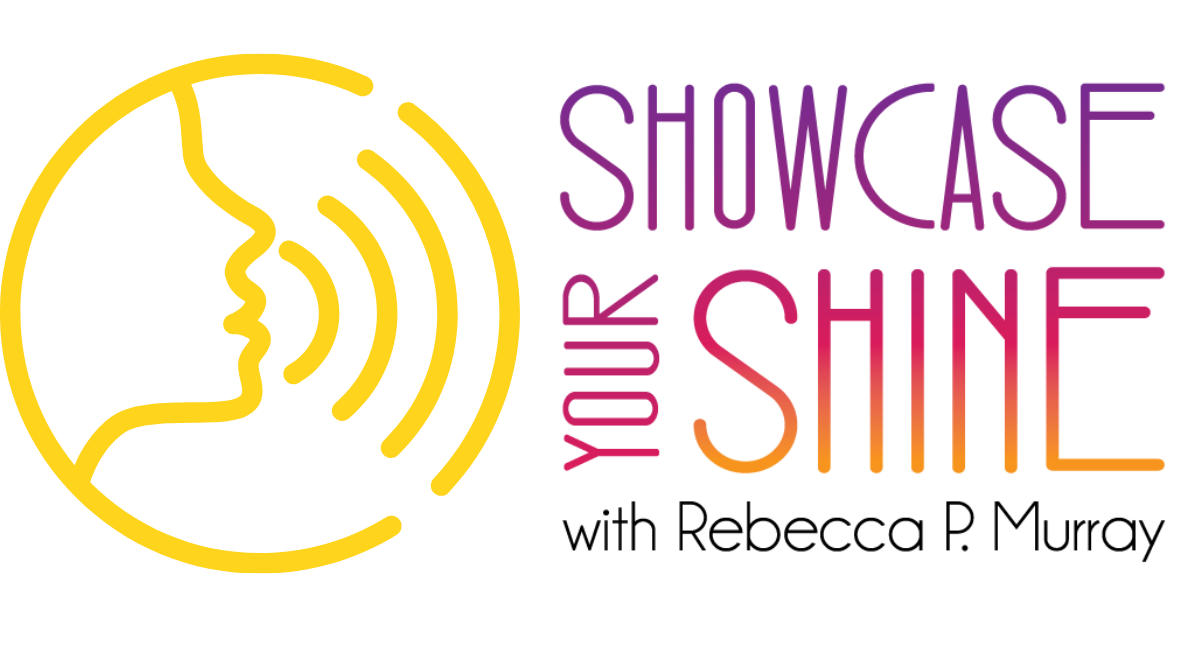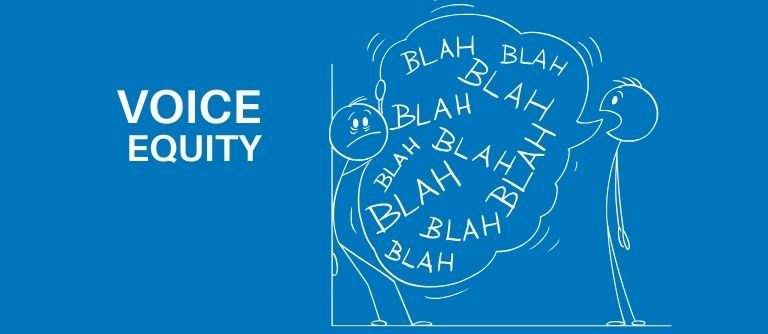Ever had your story interrupted and completely hijacked?
It’s like someone swipes the spotlight right from under you, and you’re left wondering, “Wait, wasn’t I talking?” Not fun, right? 😭
We’ve all been there, and it’s frustrating. Whether in conversation, meetings, or presentations, hijacking, interrupting, and dominating conversations are clear signs of a serious lack of Voice Equity.
Voice Equity is a mindset—a belief system, really—that values all voices in the room equally, regardless of who is speaking or what is being said. Let’s look at how Voice Equity shows up in our lives:
✅ In Conversation: It’s about the give and take. Speak briefly, then pause and listen. Yes, even when you know you could tell the story better. (I know, it’s hard.)
✅ In Meetings: This is where Voice Equity shines—or falters. Instead of always jumping in with your own brilliant point (because you probably do have something amazing to share), take a step back. Seek input from everyone in the room, even from those who might not naturally speak up.
✅ In Presentations: Voice Equity is not just about talking; it’s about creating space. Ask questions, invite comments, and encourage others to share their thoughts.
You don’t have to own the room alone—let others step in and contribute. But let’s be real here—achieving Voice Equity isn’t easy. But it’s something to strive for.
Most of us love the sound of our own voices (myself included). We’re wired to want to contribute, to have our ideas heard, and to feel validated.
One thing that helps me is setting an intention before I walk into a room—whether it’s a meeting, networking event, or a presentation.
I remind myself to be mindful, to pause, and to make space for others to share their voice. That mental check-in makes a difference, but even with this intention, I’ll admit I still fall short.
Sometimes, the excitement gets the best of me, and I dominate more than I’d like. Voice Equity is a practice, and like anything else, it takes effort and consistency. But the payoff is worth it. When we prioritize all voices in the room, we foster trust, inclusion, and richer, more diverse perspectives. That’s where real growth happens.
So, what do you think? Have you experienced moments where Voice Equity was missing? Do you have a best practice for ensuring everyone gets heard?

